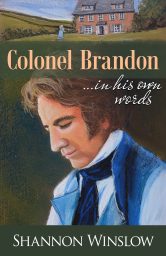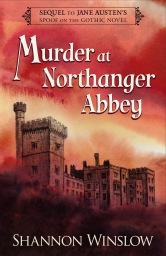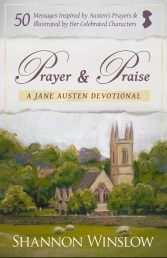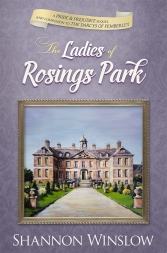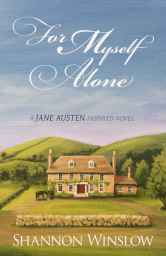 No, this is not another movie review (although I will be writing something about Love and Friendship next time). Think more Mansfield Park.
No, this is not another movie review (although I will be writing something about Love and Friendship next time). Think more Mansfield Park.
This past Saturday, June 25th, I presented a program on Jane Austen at my local library: “Twenty-first Century Jane” – how movies, sequels, and modern variations are helping to carry her popularity into the new millennium. As part of my preparations for the program, I watched (or rewatched) several of the film adaptations, including two of Mansfield Park. And because the book I’m currently working on (see Work-in-Progress page) will have a MP angle to it, I paid close attention.
Since then, I’ve been thinking about Fanny Price and, more specifically, that unfortunate episode of amateur theatrics. You may remember that while Sir Thomas was gone to Antigua, Tom Bertram and his friend Mr. Yates cooked up the idea of putting on a play at home, just to amuse themselves, and they recruited the Miss Bertrams, the Crawfords, and Mr. Rushworth to join in. They were soon assigning parts and making all kinds of plans, including sets and costumes.
 Sounds like harmless fun, right? I think it’s difficult, especially for today’s readers, to understand why Edmund Bertram and Fanny Price were so strongly opposed to the idea. And Jane Austen disapproved too, from how she writes. That may be the most surprising part, since the Austen family is known to have done the same – entertained themselves by creating and acting out amateur theatricals at home.
Sounds like harmless fun, right? I think it’s difficult, especially for today’s readers, to understand why Edmund Bertram and Fanny Price were so strongly opposed to the idea. And Jane Austen disapproved too, from how she writes. That may be the most surprising part, since the Austen family is known to have done the same – entertained themselves by creating and acting out amateur theatricals at home.
So what’s the difference here? I decided to look a little deeper into the business.
Edmund objected at once, saying he was certain Sir Thomas wouldn’t approve of his children acting. In a house where the head of the family’s word was law, that should have been enough. Tom chose to disregard what he knew to be true, though.
Then, to compound their error, the company of players made another bad choice. They decided to do Lovers’ Vows. (Presumably, the Austen family never chose to perform this kind of material.)
The first use [Fanny] made of her solitude was to take up the volume [of “Lovers’ Vows”] which had been left on the table, and begin to acquaint herself with the play of which she had heard so much. Her curiosity was all awake, and she ran through it with an eagerness which was suspended only by intervals of astonishment, that it could be chosen in the present instance—that it could be proposed and accepted in a private Theatre! Agatha and Amelia appeared to her in their different ways so totally improper for home representation—the situation of one, and the language of the other, so unfit to be expressed by any woman of modesty, that she could hardly suppose her cousins could be aware of what they were engaging in; and longed to have them roused as soon as possible by the remonstrance which Edmund would certainly make. (Mansfield Park, chapter 14)
 In the book and film adaptations, we get little snippets of dialogue as the rehearsals progress, and we see the trouble it creates. But I was still wondering what was so astonishing and improper (according to Fanny in the excerpt above) about the play itself. I found it online and read it. It is a real play, btw, which undoubtedly Jane Austen had read herself. (Read it here if you’re interested)
In the book and film adaptations, we get little snippets of dialogue as the rehearsals progress, and we see the trouble it creates. But I was still wondering what was so astonishing and improper (according to Fanny in the excerpt above) about the play itself. I found it online and read it. It is a real play, btw, which undoubtedly Jane Austen had read herself. (Read it here if you’re interested)
It didn’t seem so astonishing to me at first (not compared to what we’ve become accustomed to seeing in movies and on TV every day): a woman, who had been seduced by a nobleman under promise of marriage, was instead abandoned by him to raise their son alone in poverty. Twenty years later, just when she is near starving to death, her son chances to meet the baron, whom he discovers to be his father, etc., etc.
It takes a lot more than that to shock us these days. But consider that the story of Mansfield Park was taking place in a very different age and culture.
Although these sorts of things happened, even then, they were not talked of in polite society. Children of gentility – the girls at least – were carefully sheltered and guarded. And a career on the stage was absolutely out of the question for anyone from a good family. So to have the daughters of Sir Thomas Bertram participating in a play, especially when it meant that one of them would be posing as and speaking the part of the unwed mother of an illegitimate child, was shockingly bad indeed. Not to mention that the actress (Maria, in this case) would be embracing an actor who was definitely NOT her son or even the man she was engaged to, but bad boy Henry Crawford instead…
The only thing that could have made the situation worse was to have outsiders present to witness the impropriety, which is what Edmund finally consented to taking a role in the play to prevent.
 So, Edmund and Fanny were right all along; the acting scheme was a bad idea, at least within the given context. Tom and Maria, who were in denial before, knew it by their guilty consciences as soon as their father returned home unexpectedly. But in the end it wasn’t the words of the play that caused the real trouble; it was the permission the activity granted for bad behavior – all that close contact and sneaking off to “rehearse” in private. There’s little doubt it contributed to what ultimately happened: Maria being ruined by deciding to leave her husband to run off with Henry Crawford.
So, Edmund and Fanny were right all along; the acting scheme was a bad idea, at least within the given context. Tom and Maria, who were in denial before, knew it by their guilty consciences as soon as their father returned home unexpectedly. But in the end it wasn’t the words of the play that caused the real trouble; it was the permission the activity granted for bad behavior – all that close contact and sneaking off to “rehearse” in private. There’s little doubt it contributed to what ultimately happened: Maria being ruined by deciding to leave her husband to run off with Henry Crawford.
So, what I want to know is where was Mrs. Norris???
 Throughout the entire book she has been poking her nose into the Bertram family business, telling everybody what to do and not do, claiming to be upholding propriety and guarding against wasteful spending. Now, when we really need her to intervene, she fails us. Well, not us, but she does fail the Bertrams, especially Maria who is her favorite.
Throughout the entire book she has been poking her nose into the Bertram family business, telling everybody what to do and not do, claiming to be upholding propriety and guarding against wasteful spending. Now, when we really need her to intervene, she fails us. Well, not us, but she does fail the Bertrams, especially Maria who is her favorite.
Doesn’t it seem inconsistent that she not only allowed the acting scheme to go forward but assisted in it? Or was she blinded, like so many people are, by the bright lights and the chance to see her darling Maria shine on stage? All I can say is, “Badly done, Mrs. Norris. Badly done indeed!”


